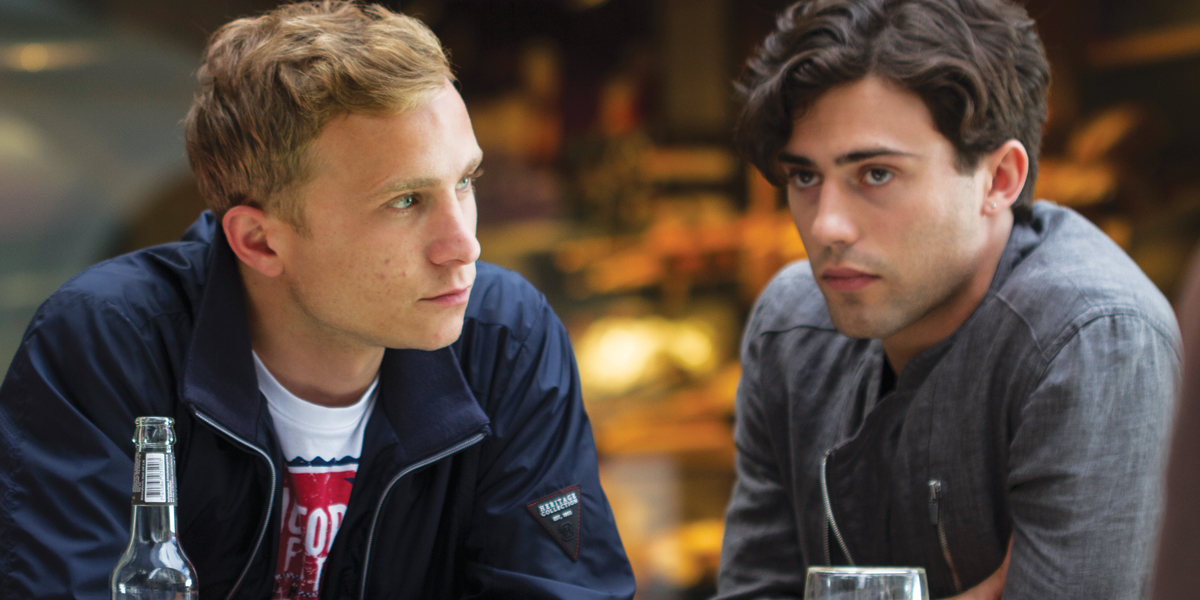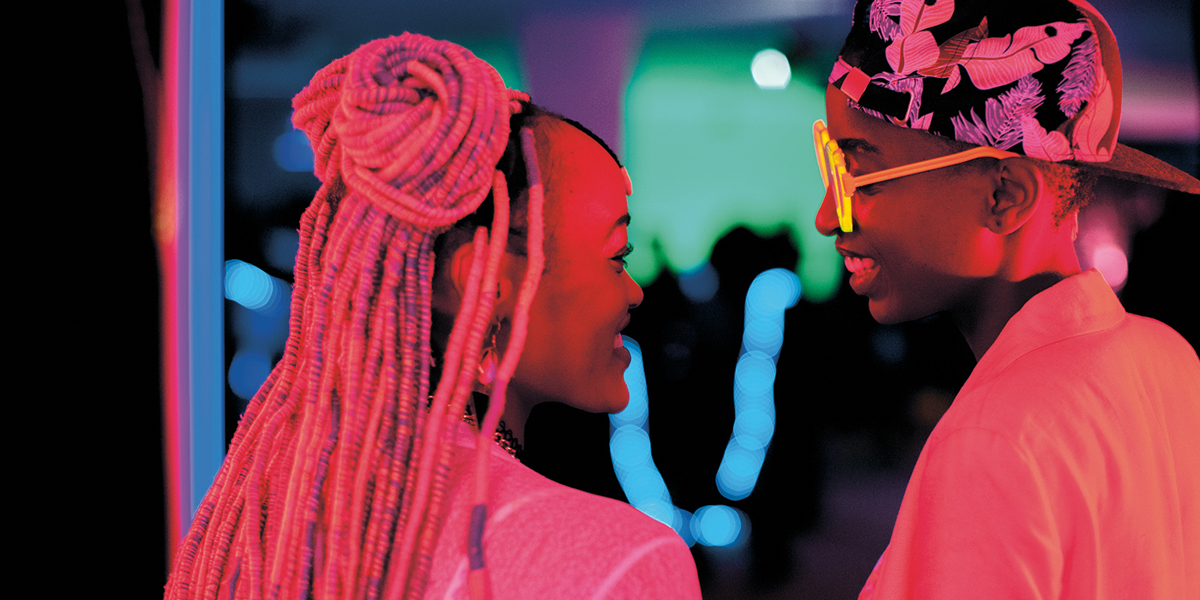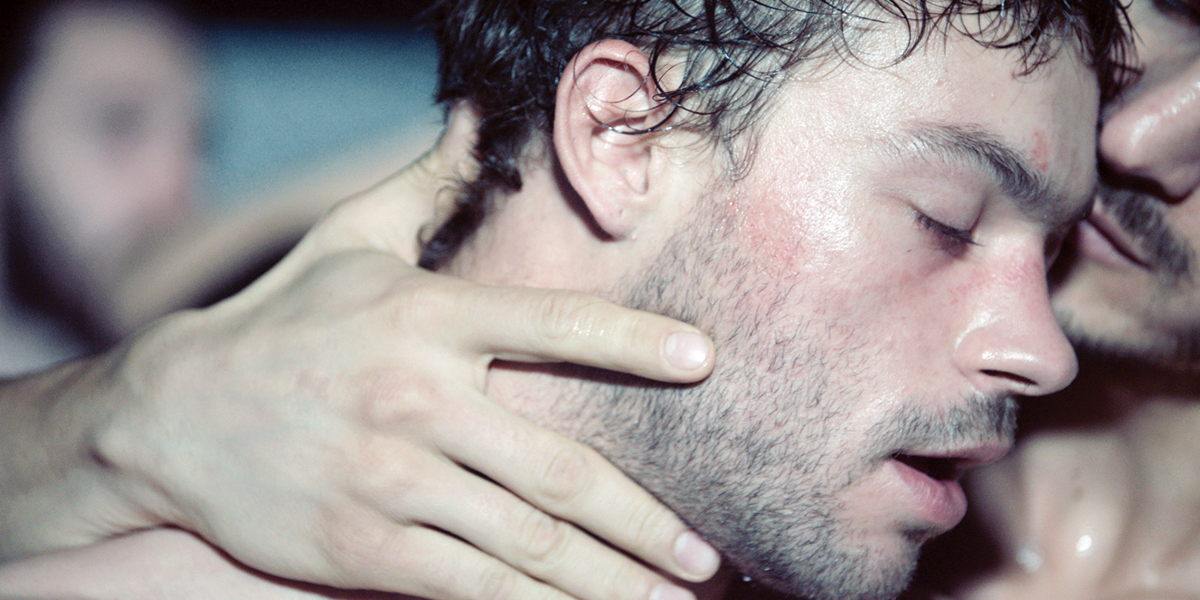Now Playing
Current DJ: Clarence Ewing: The Million Year Trip
Dean & Britta & Sonic Boom If We Make It Through December from A Peace of Us (Carpark) Add to Collection
Requests? 773-DJ-SONGS or .(JavaScript must be enabled to view this email address)
 This month CHIRP volunteer Kyle Sanders attended the 2018 Chicago International Film Festival and reported on what he discovered there...
This month CHIRP volunteer Kyle Sanders attended the 2018 Chicago International Film Festival and reported on what he discovered there...
In a volatile political landscape, minorities such as the LGBTQ community are often the ones finding themselves in a vulnerable position. As a group that is finding more awareness and representation in the pop culture they consume, it's comforting to see LGBTQ films from around the world play at the Chicago International Film Festival.
This year's event included the high profile premiere of Boy Erased, starring Russell Crowe and Nicole Kidman. However, I found the films outside the American mainstream to be quite more telling about queer culture around the world. Those films include (due to festival restrictions, the following are capsule reviews only):
Mario: Set in the masculine world of European football (AKA soccer), this Swedish drama about forbidden love involves teammates Mario and Leon, two athletes competing for a professional career yet find themselves becoming attracted to one another. As their athletic profiles begin to rise, so does their secret with suspicious teammates, and soon they find both their athletic reputations and romance in jeopardy.

Rafiki: This vibrant African film was produced in Kenya, a country that does not recognize same-sex relationships. It tells the story of Kena, a tomboyish skateboarder, and Ziki, the stylish daughter of a conservative politician. Kena's father happens to be running against Ziki's father, but the two have such an electrifying chemistry that pretty soon their friendship becomes the gossip around town. Can their relationship overcome the highly homophobic culture in which they live in? Wanuri Kahiu directs this colorful, Afropop-style film.

Sauvage: It's hard out in Strausbourg for a hustler, especially for young Leo. As he inhabits the dark underbelly of the French hustling world, Leo survives with the shirt on his back and by the monetary offers of random men. Constantly pining for the affection of a fellow hustler, Leo is a deeply lost soul trying to find love but winding up in all the wrong places.

It says something that these three films all come from different parts of the globe, and yet, their characters suffer much the same way. The plight of the gay character in cinema seems to always end in tragedy or despair, rarely ever seeing a happy ending.
It's nothing new either; we've seen many films dealing with LGBTQ themes throughout the decades, from Victim to Brokeback Mountain, and nearly every one of those films deals with the personal inner turmoil of sexual identity: a sense of loneliness, a "terrible secret," and fear of a society that will reject them.
This trio of titles certainly presents that societal rejection. With Mario, same sex relationships are acceptable almost everywhere except the sports world. It's not just the torment that Mario and Leon must face with their teammates, but the risk of losing sponsors and the support of fans.
In Rafiki, there's an entire scene that takes place inside a church, involving a sermon about the sin of homosexuality. While Sauvage presents a world where gay sex and male desire can be found right off of a roadside exit, it is unrequited love that Leo struggles with the most. These characters endure the ridicule and face the consequences for being true to themselves. It's at once refreshing to see so many depictions of queer culture projected on the silver screen, and yet disheartening to see few happy endings on the other side of the rainbow.
Next entry: One More for the Road: Reviews of “The Road Not Taken” and the Chicago International Film Festival
Previous entry: A Series of Unfortunate Events: Reviews of “Boys Cry” & “Volcano”